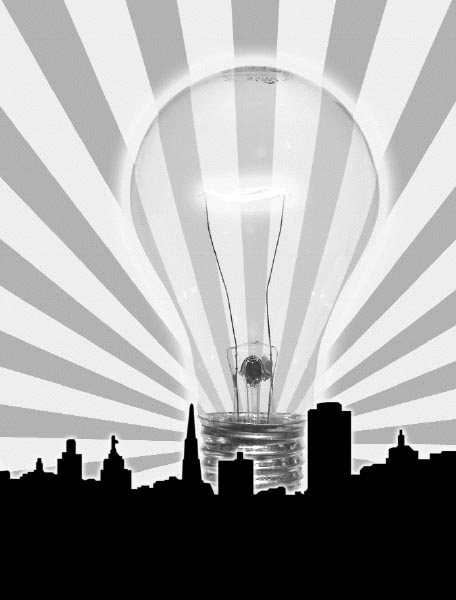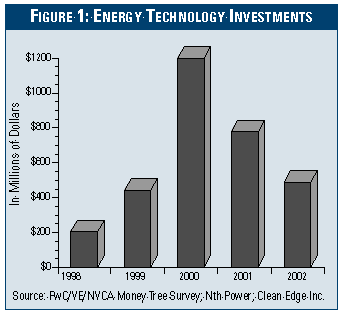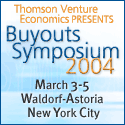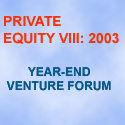Back to United States
Cover Story: Bright Idea
Peter Henig
Nov 1, 2003
 It
was a long, dark summer. There were so many blackouts you'd think
God was playing tricks with the lights. First, there was the Aug.
14 North American blackout, which left 50 million people without
lights. Then came the Sept. 21 post-Hurricane Isabel outage, which
left another 6 million in the dark. Finally, on Sept. 29, a massive
blackout blanketed nearly all of Italy, resulting in that country's
worst power outage since World War II. It
was a long, dark summer. There were so many blackouts you'd think
God was playing tricks with the lights. First, there was the Aug.
14 North American blackout, which left 50 million people without
lights. Then came the Sept. 21 post-Hurricane Isabel outage, which
left another 6 million in the dark. Finally, on Sept. 29, a massive
blackout blanketed nearly all of Italy, resulting in that country's
worst power outage since World War II.
If a big light bulb hadn't gone off over venture capitalists'
heads before the blackouts, it's certainly glowing now. There is a
growing movement to create, develop and help manufacture more reliable
sources of energy technology, ones that will make the generation and
delivery of energy cheaper, cleaner and far more intelligent. "I'm not
saying that Predictive Power, one of our portfolio companies, can
actually prevent blackouts, but its power reliability products could
certainly prevent failures in many neighborhoods," says Peter Edwards,
general partner with the Altira Group, a specialized energy technology
VC firm based in Denver, Colo.
The market opportunity is huge. The worldwide clean energy market is
forecast to grow from $9.5 billion last year to $89 billion by 2012,
according to Clean Edge Inc., an energy research and consulting firm
based in Oakland,
Calif. In particular, wind power is expected to expand from a $5.5
billion business last year to about $49 billion in 2012. During that
same 10-year period, the solar power business will flare up from $3.5
billion to more than $27.5 billion, while the fuel cell business will
surge from $500 million to $12.5 billion, Clean Edge predicts.

Driving the newfound interest in clean energy is a common and
growing understanding that blackouts spell huge potential market
opportunities for clean energy investors - along with increased
worldwide power consumption, significant energy technology
breakthroughs and even our uncomfortable reliance on oil and its ties
to Middle East politics. Also working in favor of energy deals is a
surplus of capital that venture capitalists have been looking to park.
"We've seen a major up tick in the telephone calls we've been getting
[from mainstream VCs] over the past year," says Maurice Gunderson, a
general partner with San Francisco-based Nth Power, an energy-focused
venture firm. "Their capital overhang probably started the calls, but
the public awareness inflection point reached with the blackouts has
now added to it, so they're calling to invest."
Subscribers can read the rest of story in the the Monthly Headlines section. To subscribe, click here
Back to United States
| 








